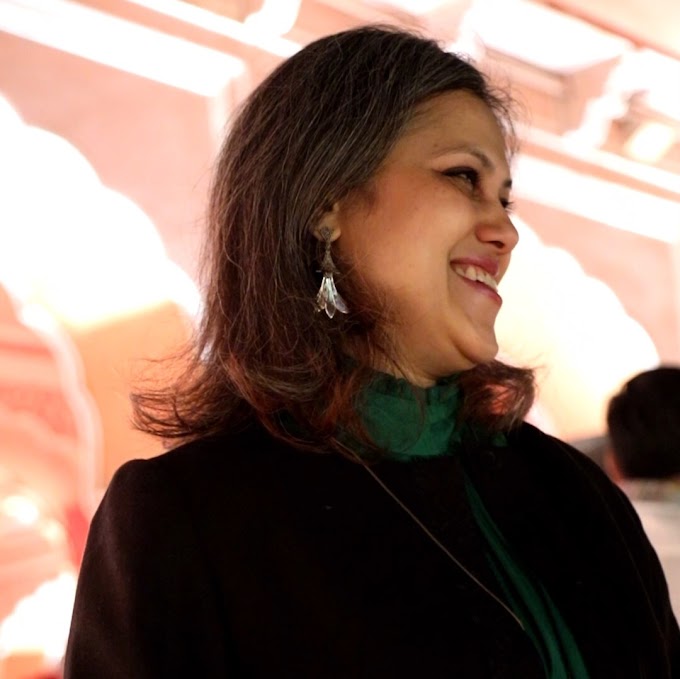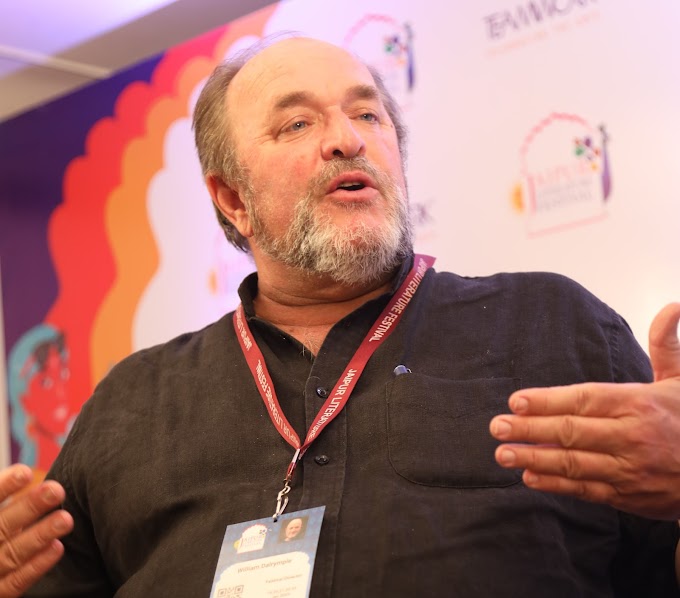She weaves tales that have seemingly transcended generations. Her words stand out with a peculiar, albeit sublime, literary narrative in the crowded book spaces of our times. For Aanchal Malhotra, the desire to chronicle was born out of a necessity to preserve untold stories.
Growing up in a family of books, the author's journey into the world of words began not out of an inherent interest in art but as a response to a critical void. In 2013, at the age of 23, she embarked on a writing odyssey prompted by the realisation that certain narratives, particularly those surrounding the partition of India and Pakistan in 1947, were absent from mainstream discourse. The void she sensed in the portrayal of historical events propelled her to become a recorder of stories, capturing the essence of untold experiences.Contrary to conventional paths, the author's academic journey substantiated her interest in art. Armed with degrees in printing, engraving, photography, papermaking, and bookmaking, she had already delved into the world of visuals. However, it was the profound conversations with her mother's family, ordinary yet laden with the weight of history, that ignited her passion for writing about partition.
The pivotal moment occurred during a conversation with her grandfather, who vividly recounted the events of partition. This revelation marked the beginning of her exploration into a history that had been overlooked and neglected. It became a personal mission for Aanchal Malhotra to document the narratives that resonated with the lived experiences of her family and others who had endured the tumultuous period.
The transition from an apathetic stance on writing to a passionate pursuit was certainly not instantaneous. However, the young yet versatile author found her purpose in storytelling, driven by a desire to record the unrecorded and illuminate the shadows of the past. Her initial reluctance towards writing transformed into a compelling force, guided by the belief that creative endeavours must have a profound reason behind them.
Venturing beyond her personal history, the author's journey led her to Montreal in Canada, where her personality was further shaped by the omnipresence of books. The family dinner table had always been a forum for discussions about literature that had instilled an early appreciation for the written word. Books, for her, are not mere objects but a natural extension of her surroundings, a sentiment reinforced by the absence of explicit directives to read.
Her foray into partition literature began with conversations that stirred her curiosity. The first impactful dialogue occurred within her family, where ordinary objects became conduits for stories about partition. The realisation that these stories were not confined to history books but were living narratives within her own family fueled her determination to delve deeper.
Aanchal Malhotra’s initiation into writing about partition involved extensive travel across India. The purpose was to document stories that were hidden beneath the surface of collective memory. The process of researching and writing her first book, "Remnants of a Separation," spanned four years and culminated in a transformative experience that cemented her identity as a storyteller.
With the success of "Remnants," she found herself at a crossroads, contemplating the trajectory of her literary journey. The natural progression led to the contemplation of a novel, not as a sequel but as a parallel exploration of history. This novel, set against the backdrop of World War I and partition, aimed to illuminate forgotten facets of Indian history.
She goes on to shed light on her nuanced approach to historical fiction, emphasising the importance of inserting fictional characters into real-time periods. Her intention is not merely to entertain but to educate. She does so artfully by leveraging the power of novels to etch historical facts into the collective memory of readers.
As the conversation progressed, the author reflected on the evolving literary landscape, particularly the rising trend of historical fiction. Her role as a curator of a bookstore provides unique insights into the reading preferences of the Indian audience. Her enduring interest in history and reading habits becomes apparent to the interviewer by this point. However, she notes a preference for lighter historical fiction. That is perhaps a signal for a potential niche she aims to explore in the future.
(As told to Saket Suman, at Jaipur Literature Festival 2023)




